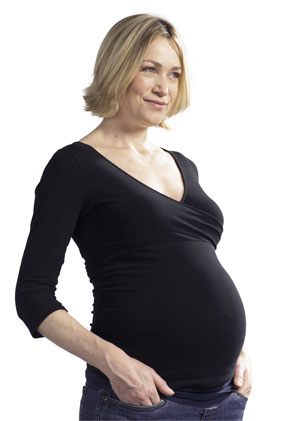 With a rising number of women opting to become mothers after the age of 45, the numbers of twins, triplets and quadruplets have also increased, mostly due to an increase in IVF.
With a rising number of women opting to become mothers after the age of 45, the numbers of twins, triplets and quadruplets have also increased, mostly due to an increase in IVF.
According to the Office of National Statistics, UK women who are over the age of 40 are more likely to give birth to multiple babies than any other age group. The rate of multiple births has thus doubled in a decade over 45. It has been found that more than one in ten women last year who became mothers had multiple births.
This rise has mostly been due to the increased use of artificial fertility treatments. In recent times many women opt to become mothers at a later age and when some hope to have babies after menopause they cannot conceive naturally and rely on fertility methods.
In treatments like IVF, often two to three embryos are implanted in the women’s womb to increase the chances of fertilisation and often more than one embryo is fertilised resulting in twins, triplets or even quads.
The survey has shown that compared to 1999 when only 29 women aged above 45 had multiple birth, in a decade the number has increased to 156. While in 1999 only 612 women over 45 gave birth, in 2009 that number more than doubled to 1,475.
Most women above the age of 40 have less number of eggs and depend on donor eggs to conceive. It was found that because there was shortage of donor eggs in UK, as many as 25,000 couples travel led abroad to fufil their dream of a child. The countries they go to include, US, Spain, Northern Cyprus or Eastern Europe. These treatments are also cheaper than UK clinics.
In Britain clinics can only transfer a maximum of 2 embryos and are encouraged to transfer only one, but many clinics in other countries do transfer more than one embryo to increase chances of fertilisation thus also increasing multiple births.
But doctors warn that these pregnancies can be risky as the babies are far more likely to be born prematurely with increased health risks and may need intensive care. This also increases the strain on the NHS.
Says a spokesman for the Human Fertility and Embryology Association,
‘Multiple births are the single biggest risk of IVF for both mothers and babies. We are working to promote the birth of a single healthy baby as the best outcome of fertility treatment.’
The numbers of multiple births though are likely to increase in a few years as health trusts stop funding IVF and more couples look for overseas options.
-Atula, Staff Writer
Related Articles:
- Time-lapse Pictures Could Help Success Rate For IVF Pregnancies
- Study: Triplet Births Are On The Rise
- Expert Panel: Ontario Should Pay For In Vitro Fertilization






